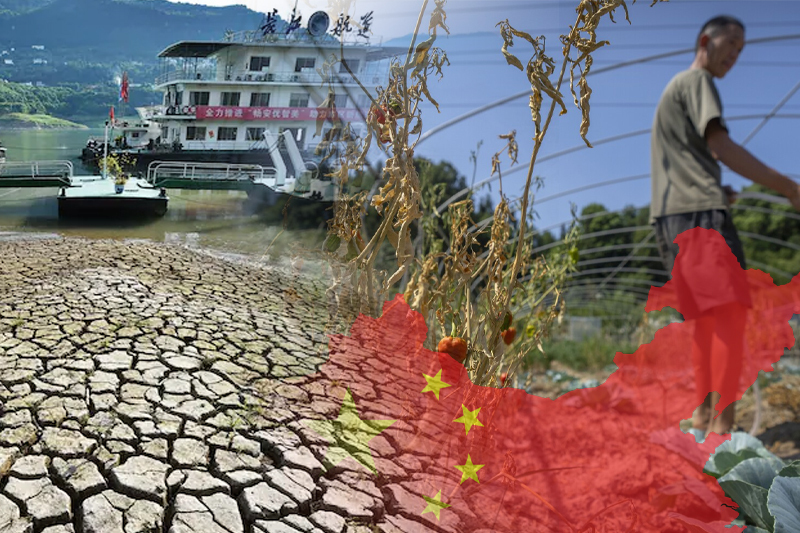
drought and heat threaten crops in china
 China – On record, this summer is the hottest, causing drought around the world. In China, drought threatens food production, prompting the government to order local authorities to take all possible measures to ensure that the crop survives this summer.
China – On record, this summer is the hottest, causing drought around the world. In China, drought threatens food production, prompting the government to order local authorities to take all possible measures to ensure that the crop survives this summer.
On Tuesday, four government departments issued an urgent joint emergency notice warning that the fall harvest was at risk. He urged local authorities to ensure that every unit of water is used carefully.
Record heat, combined with months of drought during the normal flood season, has wreaked havoc in China’s normally water-rich south. It dried up part of the Yangtze River and dozens of tributaries, drastically affecting hydropower capacity and leading to constant power outages and power rationing due to surges in power demand. There is now concern about the future of the food supply.
Crop losses are also likely to hit supply chains and exacerbate supply issues, as the Chinese city’s stocks are often grown near the city.
Related Posts
China now relies more on its own corn production, 4% of which came from drought-stricken Sichuan and Anhui, after Russia’s invasion of Ukraine dramatically destabilized global supplies.
The order to divert water sources is likely to help areas where water is not available, and subsidies have already been announced. But heat conditions are extreme and some yield loss is inevitable.
Tuesday’s notice specifically emphasized that it came from the highest levels of government, partly titled “Urgent Notice to Carefully Implement the Spirit of General Secretary Xi Jinping’s Important Instructions.”
China has made a climate crisis commitment to peak carbon emissions by 2030, but — along with some European countries — has recently shifted its coal mining priority to avert a global energy crisis. China is making great efforts to adapt. The Sichuan hydroelectric accident is likely to lead to a fossil fuel-based response in the short term before efforts are made to boost other renewable sources that have struggled to compete with cheap hydropower.












